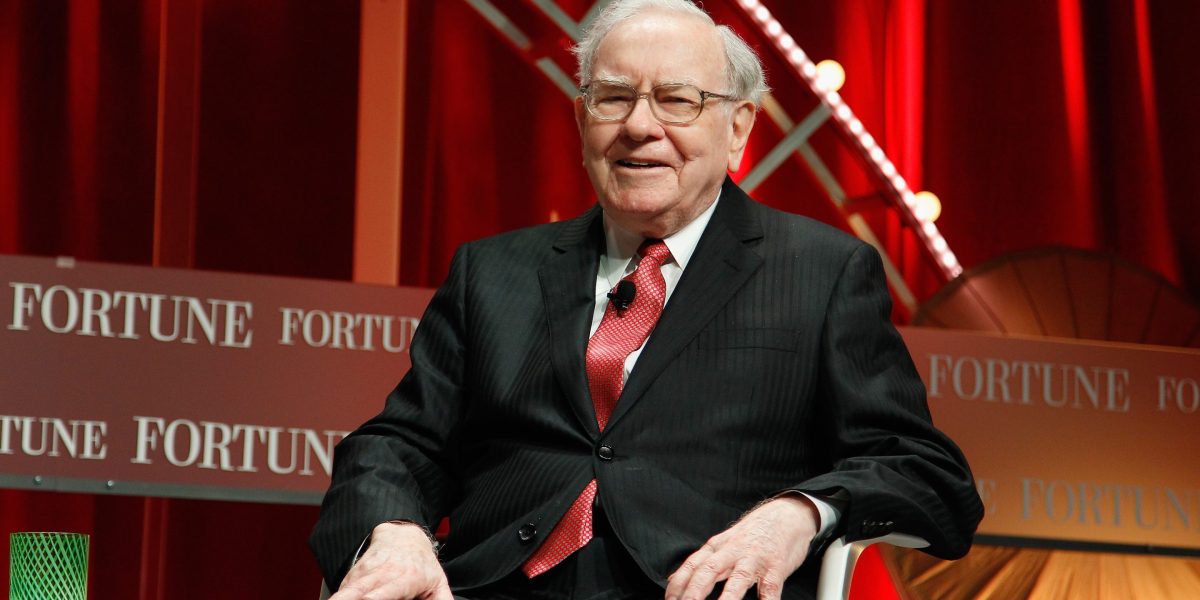Good morning and welcome to the final month of 2024. As AI adoption accelerated this year, the tech-heavy group of stocks known as the Magnificent Seven has often been in the spotlight. But the holding company Berkshire Hathaway is giving big tech a run for its money.
At age 94, Warren Buffett, chairman and CEO of Berkshire Hathaway, No. 5 in the Fortune 500, continues to keep the business world interested in what he is buying or selling. The firm’s market cap reached above $1 trillion a few months ago, and it sits just beneath Tesla and above Taiwan Semiconductor. Yet, Buffett’s company is distinct for some of its holdings. Its signature property is Geico Insurance, and it also owns brands Duracell, Fruit of the Loom, Dairy Queen, and BNSF Railway that became household names more than half a century ago.
In a new Fortune article, my colleague Geoff Colvin writes that nine of the 10 most valuable companies traded on U.S. stock exchanges are tech firms led by Apple (No. 1) and Nvidia (No. 2), along with Microsoft, Alphabet, and more. And then—there’s Berkshire Hathaway. The firm’s market cap also beats those of all other non-tech companies. Walmart would have to get 41% more valuable, just to match Berkshire’s market cap, he explains.
“So far in this tech-infatuated year, Berkshire’s stock has outperformed the shares of Apple, Microsoft, and Alphabet,” Colvin writes. “It has beaten the tech-heavy Nasdaq as well as the S&P, the Dow, and the Russell 2000. It’s hard to remember that CEO Warren Buffett told his shareholders last February, ‘All in all, we have no possibility of eye-popping performance.’”
However, market capitalization isn’t Buffett’s favorite way of evaluating a company. “Market cap gauges the market’s expectations, not measurable financial results, and as Buffett often notes, Mr. Market has mood swings,” Colvin writes.
To learn about Buffett’s favorite financial metric, along with the business bromides he disdains, you can read Colvin’s complete analysis here.
Buffett, who has definitely created an investing legacy, recently became reflective about his life in a Nov. 25 letter to shareholders.
“Father time always wins,” Buffett writes. “But he can be fickle—indeed unfair and even cruel–sometimes ending life at birth or soon thereafter while, at other times, waiting a century or so before paying a visit. To date, I’ve been very lucky, but, before long, he will get around to me.”
Buffett revealed that he is distributing an extra $1 billion to his family’s foundations. This coincides with his longstanding pledge to give away more than 99% of his worth.
Sheryl Estrada
sheryl.estrada@fortune.com
Upcoming event: The Fortune Future 50, a collaboration between Fortune and Boston Consulting Group, highlights global industry leaders—companies poised for long-term growth and exceptional returns. Join us on Dec. 4, 11 a.m.-12 p.m. ET, for a virtual discussion, presented in partnership with Workday, to hear directly from Future 50 executives. The leaders will discuss how they leverage strategy, technology, and talent to drive growth, even in uncertain times. Speakers include Avani Prabhakar, chief people officer at Atlassian; Arsalan Tavakoli, cofounder and SVP of field engineering at Databricks; and Amanda Whalen, CFO of Klaviyo. You can find out more information and register here.
Leaderboard
Benoit Fouilland was named CFO of Celonis, a process mining and process intelligence company, effective Dec. 1. Fouilland has over three decades of finance and executive management experience. He joins Celonis from Contentsquare, where he served as CFO. Before that, he was CFO of Firmenich, a fragrance and taste company where he was a Celonis customer. Prior to Firmenich, Fouilland held CFO roles at Criteo SA, SAP AG, and Business Objects SA.
Michael Buttstedt was appointed CFO at Allianz Partners, an insurance and assistance services firm. With more than 25 years within the Allianz Group, Buttstedt joins Allianz Partners from his recent role at Allianz Italy, where he served as CFO for four years. Before that, he was chief risk officer for five years. Buttstedt has held numerous leadership positions across the Allianz Group, including chief risk officer at Allianz Switzerland and group risk officer at Allianz SE.
Big Deal
U.S. deal activity shows a continuing rebound after the fluctuation seen over the last three years, according to the end-of-year 2024 EY-Parthenon Deal Barometer. EY macroeconomics experts predict 2025 U.S. M&A deal volume overall will grow 10% year over year. For private equity, the experts’ M&A outlook predicts a 16% rise in 2025.
After a slowdown in the second half of 2024, EY’s Deal Barometer estimates the volume of corporate M&A deals (for deals over $100 million) will gradually pick up, rising 8% in 2025 after a likely 11% increase in 2024. With 830 deals year-to-date through September, the Deal Barometer anticipates around 1,080 deals in 2024 and around 1,170 deals in 2025.
Going deeper
Fortune’s finance team put our heads together to come up with stock ideas for the coming year, culminating in the report “5 investing trends for 2025—and 15 stocks to help you bet on them.”
We began by identifying five trends and then picking three companies set to ride each of those waves in 2025. In some cases, our picks reflect the ongoing march of technology. Other trends such as geopolitical risk as having the biggest potential to create disruption—and health and wellness reflect broader political and social shifts.
Overheard
“Travel has always been an extremely competitive business. Everybody’s always trying to come up with more revenue streams.”
—Booking Holdings CEO Glenn Fogel told Fortune in an interview. Fogel presides over all of the travel company’s brands, including Priceline, Booking.com, Kayak, Agoda, and OpenTable, among others.
